#gaudy night
Note
Hi! I just finished reading Gaudy Night, which I bought a while ago after seeing you talk about it. (Thank you so much for spreading the word btw!! I shall now be proselytizing to anyone who will listen.) I absolutely loved it. The mystery was great, the writing was 🤌, but the romance!!! Phew! So nuanced! So refreshing! But I'd love to hear your take on the dog collar thing. What was up with that?? Do you know if it was supposed to be as spicy as it seemed to my 2024 eye?
Hello, Anon, I am so delighted! The Gaudy Night proselytizing spreads!
The dog collar! As spicy as it appears to you? perhaps not. More confidently I would say: probably not spicy in precisely the same way it appears close to a century later. I think that the most significant way it advances intimacy is as the first thing Harriet allows Peter to give her, as he cannot resist pointing out. Because Harriet and Peter (my beloveds) are also terrible at talking directly about their feelings, it also allows them to do that. It allows Harriet a dispassionate (!) experience of Peter's physicality and her own, and I think that matters. And because -- again, I cannot overstate this -- they are terrible at talking directly about their feelings, it allows them to experiment with the vocabulary of claiming ("I have taken your collar away to have my name put on") in a context far removed from their scrupulous intellectual discussions about obligation, desire, and the counterpoint.
73 notes
·
View notes
Text
Finished Gaudy Night. Let me assure you that the only reason I'm not screaming is that it's quarter past midnight and my parents are sleeping.
63 notes
·
View notes
Text
i just finished gaudy night and am amazed by the way dorothy sayers was able to pull off a romance that is an instalove for peter and a slowburn for harriet. except it kind of is a slowburn for peter too, because he had to learn the way he was trying to love harriet was selfish and childish. but wow, not only is peter/harriet an amazing couple almost impossible not to root for, they have such a fascinating dynamic that goes beyond the label of 'romance', believable conflict that makes it more complex and compelling, and a female character that can't simply be called love interest because that would be insulting to who she is and her role in the story.
like there's so much to them. and it's all so good. love when authors can actually write!!
#lord peter wimsey#gaudy night#the euphoric feeling when a het romance is phenomenal. happens once every 100 books
89 notes
·
View notes
Text

This line goes so crazy hard that you’d think it’d be from Dorothy L. Sayers’ tenth Lord Peter Wimsey mystery ‘Gaudy Night’
And you’d be correct!
64 notes
·
View notes
Text
Sayers Hivemind: Does anyone have an answer to the Mystery of Peter's Niece? I haven't read much of Sayers' letters or her writing about the books; does she ever explain this strange child?
There are only two extremely brief mentions of this character to my knowledge: in Gaudy Night, when Saint-George says "my sister" is "at school," and in Busman's Honeymoon, when Peter says "[Saint-George's] sister" has "no vitality." If she was mentioned only in an early story, I'd assume Sayers had changed her mind about including the character and hoped people would forget, but having her only mentioned in the last two books is really strange.
Based on an absence of evidence, she had to have been born after Clouds of Witness, since Peter says that Gerald's death would affect "his wife and young son" -- you'd expect him to say "his wife and children" if he had more than one.
She's also not mentioned in “The Learned Adventure of the Dragon's Head,” which takes place when Jerry is 10, and although it's technically possible she could have been alive at this point, it seems unlikely -- Peter is taking care of Jerry because Gerald and Helen are on vacation and there's an illness at his (Jerry's) school. If Gerald and Helen had left the baby with a nurse at Duke's Denver, Jerry could have gone back there, and it seems unlikely that they would have brought a child of less than two on vacation with them.
In Gaudy Night, Jerry's age is not explicitly stated, but Peter says "you attain your majority next July," and as far as I can tell that meant turning 21 at the time. If Jerry is 20 in Gaudy Night and The Sister was born right after "Dragon's Head," she'd be about 10 -- my understanding is that boarding schools at the time didn't start students until 11 or 12. Also, Jerry says that he doesn't think it would occur to her to write to Peter about Jerry's injury: "'Not unless Aunt Mary's written to him. My Grandmother's on the Riviera, and I don't suppose it would occur to my sister. She's at school." This implies that her being at school is the reason he wouldn't expect her to write; i.e., she's busy. But if she's 10 or so, you'd think he'd say something like "I don't suppose it would occur to my sister, she's just a kid." When I was a preteen, it certainly never occurred to me that it would be my job to update any adult about our family news.
Basically none of it seems to add up, and I'm absolutely flummoxed. If any of you know something I don't which explains, or at least makes more understandable, this baffling mystery, I would be greatly obliged.
42 notes
·
View notes
Text
We don't talk enough about the Petherbridge/Walter adaptations of the Wimsey/Vane novels.
(Well, we probably talk EXACTLY enough about Gaudy Night, which is really pretty bad, but besides for that...)
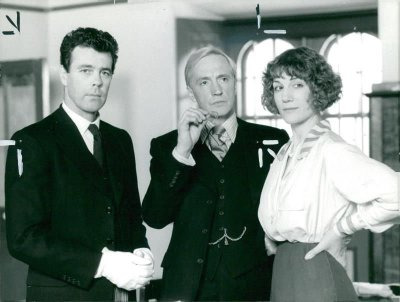
(Sorry, just a warning, Richard Morant as Bunter is fine but I won't have much to say about him here. I just really like this picture.)
The casting is basically perfect, especially Harriet Walter as Harriet Vane. I no longer see the book character in any other way- the only notable difference is that in the book she's noted as having a deep voice, but Walter's has a distinctive enough tone that I think it works regardless. She is just so, so, so good- captures the character beautifully, sells everything she does whether mundane or ridiculous (probably the best/most realistic reaction of someone finding a body I have EVER seen in Have His Carcase), makes the most of every limited minute she's on screen in Strong Poison and leaves her mark every minute that she isn't... and she looks AMAZING doing all of it. Just perfect, could not imagine better casting.
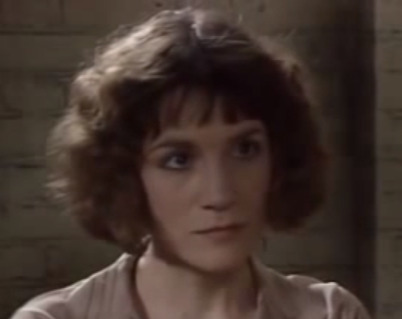
Edward Petherbridge I don't hold up to that level of perfection- I think that, try as he might, he's not really able to capture Wimsey's dynamism (possibly because he's a bit too old for the role) and is a bit overly caricatured in many of his mannerisms. But overall he does a pretty good job, in addition to looking quite a lot like how I'd imagined Wimsey- but in particular, I think he does a really lovely job of selling a lot of the emotion that he has to convey in some scenes that feel like they SHOULDN'T be adaptable from the book- specifically the scenes of him and Harriet. Him proposing to Harriet, him being disappointed when she (completely reasonably) turns him down... those shouldn't work on screen with real humans rather than in Sayers's calculated prose, but it DOES work and in no small part because he's great at selling Wimsey's feelings as being genuine even when his actions seem over the top. And, of course, Harriet Walter sells her end of the scenes right back. All in all, I think I have mixed feelings about Petherbridge as Lord Peter Wimsey the detective, but I'm a fan of him as Peter, the man who has feelings for Harriet.
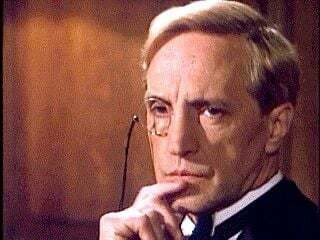
Overall, though, both are, I think, very successful in capturing these characters- the fact that they take these people who even in the book can sometimes push the boundaries of likeability (which to be clear, is part of what I love about reading them) and make them eminently watchable is a great achievement. And also, in addition to their really looking like their characters individually, they're very well matched as a pair in the way that one pictures them from the book. They're even of very similar height and build, which we know is canonically true from Gaudy Night, and thus at least a somewhat relevant element of their dynamic.
Now, the adaptations are very uneven, and that's even without talking about Gaudy Night because, while it has about as good a rendition of the punting scene as I think we were ever going to get, most of the rest of it is crap and massively expands on what I think are serious problems to Peter and Harriet's relationship that the series as a whole had (not to mention cutting the character of St George, which is a travesty). None of the adaptations are perfect, and mess with aspects of their relationship in negative ways- for example, the ending of Strong Poison is exactly backward in a really awful way. I'll get back to this.
But when the show gets the two of them right, it gets them RIGHT, even when it's adapting Sayers's text/creating new dialogue. There are scenes in this one that I love almost as much as the canon text, like this one:
I don't think any of this is in the book, and there are things that happen here that I don't think Sayers would have ever written. But at the same time, a combination of the dialogue and the actors makes it COMPLETELY believable as these two people, and it captures a moment that is just really key for Peter as he faces his limitations and his feelings- something that in the book is conveyed through a lot of internal narrative on Peter's part that would be impossible to adapt as is, but that in the world of the show needed to happen in a much more visual and narrative way. Not all of the dialogue that this series chooses to fill in those gaps works, but even when it doesn't the actors do their best to sell the heck out of it, and when the dialogue DOES work it is seriously brilliant.
Probably my favorite of the adaptations is Have His Carcase, and scenes like this one are a big part of the reason why:
They change the location, but otherwise it's EXTRAORDINARILY faithful to the equivalent scene in the book, and honestly it shouldn't have worked with real people doing it and yet it does. It's just acted perfectly, given just enough arch and silly humor (particularly with the spinning door) that we don't attempt to take it too seriously, while also conveying the relevant emotions so well. The actors in the scene through only their faces and ways of speaking convey subtext that Sayers, in the book, conveyed a lot later on as actual text in the characters' thoughts, and there's something pretty great about that.
Other Have His Carcase scenes are less good (the dance scene is mediocre at best, I think), but if there's another Have His Carcase scene that I think illustrates how great Walter and Petherbridge are at selling the human sides of their characters, it's That Argument- seen here:
The Argument is a pale imitation of that in the book- the one in the book is, in fact, probably unadaptable as is- but it is still just so good because the actors are so good at selling it. Walter is just brilliant in the role and utterly inhabits it while also imbuing it with her own spin, and makes us feel Harriet's pain- and Petherbridge, through some relatively subtle facial expressions and reactions, is able just as well to make US understand what all of this means to him and how he feels. It's actually really remarkable that, just like how Sayers writes a relationship dynamic that only feels like it works because she's the one who wrote it that very specific way, this scene feels like it only works because these two actors play it in this specific way. Could two other actors do it? Very possibly, but it would feel super different and I wonder if it would feel this authentic. (I do want to note though that this scene made me really wish that we'd seen a Frasier-era David Hyde Pierce in the role of a younger and spryer, but equally posh, witty, and vulnerable, Wimsey. It just gave me vibes of something that he'd do beautifully.)
Now, as I said above, this doesn't get EVERYTHING right. In fact, quite a lot of their relationship ends up going pretty wrong- as I think a major mistake is their throughline which emphasizes Peter's continued pursuit of Harriet as not just reiterating his interest to make it clear that he hasn't changed his mind, but actively taking advantage of moments and situations in a romantic sense, taking a much more specific role in engaging with her physically, commenting on her appearance, saying how difficult it is for him to NOT pursue her more, etc. It makes the whole thing feel a lot more cat-and-mouse rather than a budding relationship of equals, and one where Peter acknowledges the whole time that they HAVE to be equals for a) Harriet to feel comfortable with him and b) them to be good together. In fact, however good the Argument above is, it's kind of undercut by this very pattern- he makes the book's point about him treating his feelings like something out of a comic opera, but he also at that point in the story has had a few much more oppressively serious scenes with her that clearly make her uncomfortable- nothing like anything in a comic opera. It's like the show misses the point a little.
I think the place where this really starts is at the end of Strong Poison. (I could see an argument to be made that it starts earlier, in a few smaller nuances of their jailhouse scenes, but I like those enough that I choose not to read into them too much lol.) After what I think is a great addition to the final jailhouse scene (one that I loved so much I repurposed it for a fic)- "it's supposed to be about love, isn't it" and some excellent reactions from Petherbridge- Harriet goes to court, her charges are dismissed, and unlike in the book, when it's Wimsey who leaves first (which Eiluned and Sylvia point out is a sign of his decency in not waiting for Harriet to thank him), here Wimsey is the one who watches as Harriet rejects him and walks away from him- the beginning of the chase. But nothing about their relationship is meant to be a chase! It's so frustrating to watch as that proceeds to be a continuing issue to a limited degree in Have His Carcase (where it's at least balanced by enough good moments that it doesn't matter so much) and to a MASSIVE, genuinely uncomfortable degree in Gaudy Night.
The only praise I will give it is that while the punt scene in the book is unfilmable, I think this adaptation did its best here and it's pretty good.
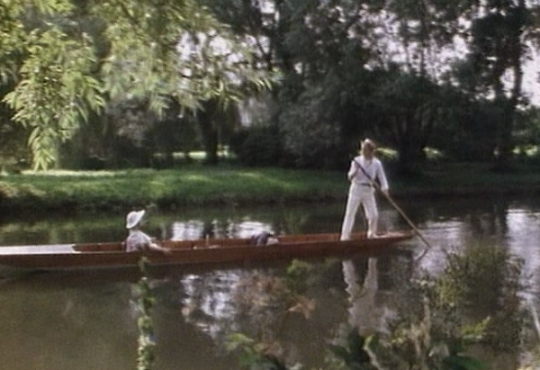
I'm not going to spend much time talking about Gaudy Night otherwise, because I'd need all day for it and also I'd probably need to rewatch it to make sure I get the details right and I have zero interest in doing that, but the way that it has Wimsey imposing himself and his feelings/hopes on Harriet to a really ridiculous degree, in a way that he never, ever does in the book, is just so so discomfiting and makes me feel terrible for Harriet. She doesn't deserve that. If I recall correctly, in that scene at the dance at the beginning, she's so happy just being with him and then he's all "oh so this means you want to marry me" and she just droops. He's so aggressive!
And that's what makes the worst part so bad, because not only does this miniseries not depict Wimsey's apology as the book does- one of the best scenes in a book full of brilliant scenes- it would actually be weird if it did, because this show doesn't imply that there's ANYTHING for Wimsey to be apologizing for! In fact, unlike in the books where we see Wimsey growing and deconstructing the parts of himself that had been demanding of Harriet, in the series we only see him get more demanding- until finally he wins. It's honestly infuriating and I hate it- the actors do their best to sell it (and apparently they were given bad enough material that they actually had to rewrite some of it themselves, though I have mixed feelings about the results) but it is just massively disappointing. Basically the whole emotional journey between the two of them is not just neutered but twisted.
For all of my criticisms of the adaptations' all around approach to their relationship, I do have to reiterate- Walter and Petherbridge do a wonderful, wonderful job. (Especially Walter.) When they're given good material to work with, and even often when they aren't, they are able to sell it so well- and particularly in the case of Walter, I genuinely can't think of the character as anyone but her rendition now. She IS Harriet Vane for me. And, for all the flaws that the series has, that's something pretty dang special.
Anyway, for anyone who read through this whole thing and hasn't seen these adaptations, I DO recommend Strong Poison and Have His Carcase- but not Gaudy Night unless you're either really curious or a glutton for punishment. The first two, though, have very good supporting casts, are quite faithful plot wise (sometimes to a fault- another flaw is that they are really devoted to conveying the whole mystery with all its clues sometimes to the point of dragginess, but will drop sideplots like, for example, Parker and Mary- which is totally reasonable, but still vaguely disappointing as those sideplots tend to add some levity/characterization), and just generally are an overall good time. (Some standout characters for me are Miss Climpson in Strong Poison and Mrs Lefranc in Have His Carcase.) And, of course, the best part is seeing the little snippets of Peter and Harriet that come through- less so their journey, vs in the book where that's central, but so many scenes where we just see the two of them together as they are in that moment and it's so satisfying.
#peter wimsey series#peter wimsey#lord peter wimsey#harriet vane#dorothy l sayers#edward petherbridge#harriet walter#a dorothy l sayers mystery#as was apparently the official title of the petherbridge/walter series#my thanks to the as my wimsey takes me podcast people#for a) coming back and finishing have his carcase#which was very enjoyable plane listening#but also for mentioning the adaptation in one of the episodes and inspiring the rewatch that led to this post#also this blog is basically now a sayers blog just as it is a finnemore one i guess#which as i note is fitting due to my Dog Collar Theory#which is YET ANOTHER THING THAT THE GAUDY NIGHT ADAPTATION LEAVES OUT GRRRRRR#strong poison#have his carcase#gaudy night
38 notes
·
View notes
Text
"The trouble is," said the Librarian, "that everybody sneers at restrictions and demands freedom, till something annoying happens; then they demand angrily what has become of the discipline."
Dorothy L. Sayers, Gaudy Night
#quote#quotation#Dorothy L Sayers#Gaudy Night#trouble#restrictions#freedom#annoying#angry#discipline
50 notes
·
View notes
Text
Lots of amazing takes on how Benoit Blanc met his husband/partner floating around, and I love all of them, but I’ve got to say my own personal headcanon is strongly influenced by Lord Peter Wimsey and Harriet Vane in their Strong Poison to Gaudy Night trajectory: Phillip/Hugh Grant’s character was accused of murder, and Benoit Blanc was on the case and the only one who believed he was innocent. The hurt/comfort potential alone would just be 🔥. Plus the internal battle for Benoit, always deeply upstanding, to try to keep his own growing feelings out of it long enough to make sure he is being objective in his investigations. I just—
#glass onion#glass onion spoilers#benoit blanc#benoit blanc’s husband#lord peter wimsey#harriet vane#strong poison#gaudy night#headcanons
224 notes
·
View notes
Text

Gaudy Night + Coffee
#Gaudy Night#Lord Peter Wimsey#Dorothy Sayers#books#coffee#booklr#book photography#photography#photographers on tumblr#original photography#book#fiction#softcover#mystery
42 notes
·
View notes
Text

Wimseyverse friends, the spirit of your posting came over me when I last entered a used book store. Although I had never consciously considered looking for this book, I knew that if the bookstore had it in stock, I would purchase it. And now, here we are.
#gaudy night#dorothy l. sayers#lord peter wimsey#harriet vane#wimseyverse#books#booklr#reading#bookish#bibliophile
28 notes
·
View notes
Text
Counterpoint, a collection





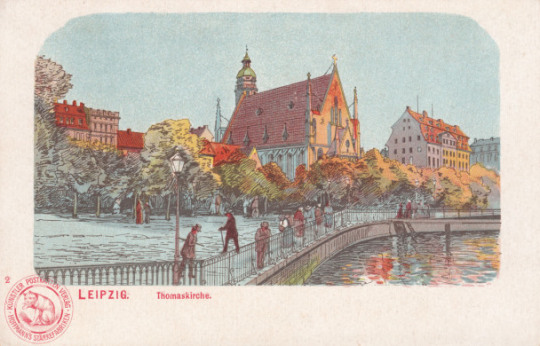
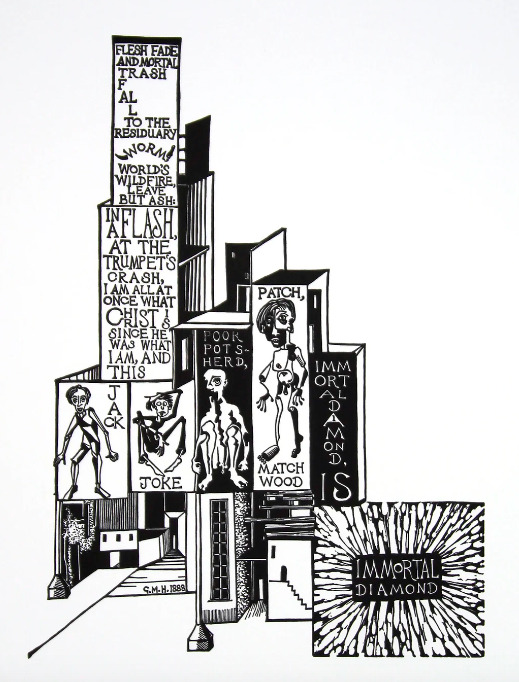
Bach's Fugue 4 in C# minor from Well-Tempered Clavier I, autograph
Gaudy Night, by Dorothy L. Sayers
Bach's Fugue 4 in C# minor from WTC I, performed by Kimiko Ishizaka
Pale Fire, by Vladimir Nabokov
Uncredited illustration from The New Yorker, March 6, 2023
An Essay on Man, Alexander Pope
Thomaskirche, Leipzig, postcard
Original Print: That Nature is a Heraclitean Fire (Gerard Manley Hopkins), from The Wytham Studio
#Counterpoint#johann sebastian bach#gerard manley hopkins#gaudy night#leipzig#thomaskirche#well-tempered clavier#fugue#pale fire#vladimir nabokov#alexander pope#music#web weaving#dorothy l sayers
44 notes
·
View notes
Note
Hi! Sorry to bother, but my Tumblr research shows that you are probably the person who could know an answer to my question and also not think the question is dull. So,
Dear Designated Wimseyverse Consultant!
I have read my first Wimsey novel (Gaudy Night) a couple of weeks ago, but I have read it in translation. It is not a speedy and cheap pocket-book crime story translation, it was done by highly educated professionals who have considered England their intellectual playground for many years. The edition I've read has also had an excellent article on female university education in Oxford and Cambridge in it, along with an Oxford 101 (for the 30's), a glossary and two maps (that of Shrewsbury and that of Oxford if Shrewsbury existed). And of course there has been a ton of delightfully nerdy footnotes, which not only explained what was quoted but also why. So that's how I knew what was going on in Gaudy night. But how do people who read the original understand the references and their meaning? I couldn't find any annotated versions and now I am really curious (and also a bit terrified, because I wanted to try and improve my English).
Hello! The question is anything but dull. And the answer is... most of Sayers' readers do not understand all of the references and their meanings. Many of us, I think it is safe to say, understand most of them. But also, having been rereading the books for 20 years, I recently understood a 17th-century sex euphemism in Gaudy Night for the first time and screamed into a pillow about it. (Death 'Twixt Wind and Water. And it's this book that Lord Peter helps Harriet see the humanity in, rather than treating it as the result of a series of careful intellectual calculations. SAYERS.)
One of the answers to how English-speakers less erudite than Sayers (most of us) understand the references is to ask each other; @talkingpiffle is a great Wimseyite resource here. But/and also, the question of why things are quoted is, I think, delightfully complex, and working this out is part of the fun.
As someone who has read a lot of books either in translation out of English, or in their originals after reading them in English, as part of language-learning endeavors, allow me to suggest that Christie would be a much easier entry point. I love Sayers more, but the love of not always keeping up with characters who are better-educated and more widely read than I am is part of the attraction. I still don't know Attic Greek.
42 notes
·
View notes
Text
I just started reading Gaudy Night, and, oh my god, the signs in the halls of residence are so funny--
NO WASHING-UP TO BE DONE AFTER 11 P.M.
NO BATHS TO BE TAKEN AFTER 11 P.M.
IF STUDENTS PERSIST IN TAKING BATHS AFTER 11 P.M. THE BATHROOMS WILL BE LOCKED AT 10.30 P.M. SOME CONSIDERATION FOR OTHERS IS NECESSARY IN COMMUNITY LIFE
Like... yeah, that's uni halls for you asdfghjkl
Also, Harriet, you're being so rude about how other people dress--
Please, be nice.
13 notes
·
View notes
Text
Everything that was alive in him lay in the palm of her hand, like a ripe apple.
—Dorothy L. Sayers, Gaudy Night
#dorothy l sayers#lord peter wimsey#gaudy night#book quotes#this line took me by surprise i had to read it several times...
23 notes
·
View notes
Quote
The black frock fitted her like a glove. It was made with the small square yoke and long, close sleeves, softened by a wrist-frill falling nearly to the knuckles. It outlined her figure to the waist and fell full- skirted to the ground, with a suggestion of the medieval robe. Its dull surface effaced itself not outshining the dull gleam of the academic poplin.
Yes, I want this dress, an urge I often feel when reading of fashion in fiction.
This one was described in 1936 by Dorothy L. Sayers in her novel Gaudy Night, a book in which Sayers made clear that she believed a woman of sense knew how to dress appropriately for every occasion. The occasion here was Gaudy Night when the alums of the women’s college set at Oxford University in England came back for a celebration. Her heroine, Harriet Vane, herself a writer of mysteries wears the dress. The dress is not only quietly magnificent, Vane also knows just how to wear it with the academic robe, the “academic poplin” mentioned, which she must wear over the dress, a tradition of the college.
Vane has come back as an alum and ends up trying to solve two mysteries: who is harassing the women of the college with threats and vandalism? and should she marry Lord Peter Wimsey, the impossibly charming, erudite and wealthy investigator who save her from a murder conviction? The answer to the second question seems obvious to me--yes, go marry the man!-- but Sayers takes just as long to explore the question of marriage for a woman with a professional career in 1936 as she does to uncover the mystery.
#Dorothy Sayers#harriet vane#lord peter wimsey#fashion in fiction#gaudy night#vintage evening dress#vintage fashion#1930s fashion#costume history#dress history#fashion history#academic fashion#oxford university#mystery novels#marriage
209 notes
·
View notes
Text
Thinking about her (the 9-year-old girl from Gaudy Night who says "I don't want a husband, I'd rather have a motorcycle").
16 notes
·
View notes